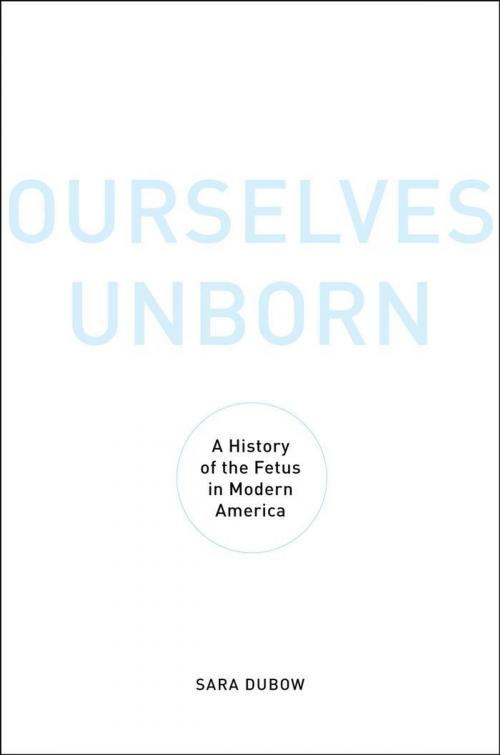Ourselves Unborn
A History of the Fetus in Modern America
Nonfiction, Science & Nature, Science, Biological Sciences, Biology, History, Americas, United States, 20th Century| Author: | Sara Dubow | ISBN: | 9780199779765 |
| Publisher: | Oxford University Press | Publication: | December 1, 2010 |
| Imprint: | Oxford University Press | Language: | English |
| Author: | Sara Dubow |
| ISBN: | 9780199779765 |
| Publisher: | Oxford University Press |
| Publication: | December 1, 2010 |
| Imprint: | Oxford University Press |
| Language: | English |
During the past several decades, the fetus has been diversely represented in political debates, medical textbooks and journals, personal memoirs and autobiographies, museum exhibits and mass media, and civil and criminal law. Ourselves Unborn argues that the meanings people attribute to the fetus are not based simply on biological fact or theological truth, but are in fact strongly influenced by competing definitions of personhood and identity, beliefs about knowledge and authority, and assumptions about gender roles and sexuality. In addition, these meanings can be shaped by dramatic historical change: over the course of the twentieth century, medical and technological changes made fetal development more comprehensible, while political and social changes made the fetus a subject of public controversy. Moreover, since the late nineteenth century, questions about how fetal life develops and should be valued have frequently intersected with debates about the authority of science and religion, and the relationship between the individual and society. In examining the contested history of fetal meanings, Sara Dubow brings a fresh perspective to these vital debates.
During the past several decades, the fetus has been diversely represented in political debates, medical textbooks and journals, personal memoirs and autobiographies, museum exhibits and mass media, and civil and criminal law. Ourselves Unborn argues that the meanings people attribute to the fetus are not based simply on biological fact or theological truth, but are in fact strongly influenced by competing definitions of personhood and identity, beliefs about knowledge and authority, and assumptions about gender roles and sexuality. In addition, these meanings can be shaped by dramatic historical change: over the course of the twentieth century, medical and technological changes made fetal development more comprehensible, while political and social changes made the fetus a subject of public controversy. Moreover, since the late nineteenth century, questions about how fetal life develops and should be valued have frequently intersected with debates about the authority of science and religion, and the relationship between the individual and society. In examining the contested history of fetal meanings, Sara Dubow brings a fresh perspective to these vital debates.















